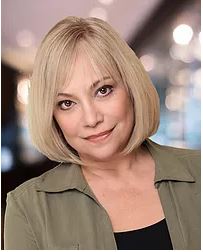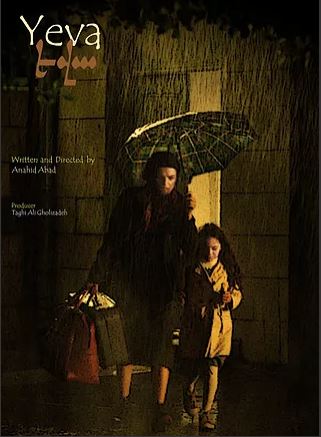
The sixth edition of the Socially Relevant Film Festival, executive directed by Nora Armani, gets underway in downtown New York this coming March 16th. Founded to honor the memory of her Cairene cousin Vanya Exerjian, who was brutally murdered in 2004 by a religious fundamentalist, the festival celebrates those filmmakers whose work emphasizes socially relevant messages, human rights and stories of human interest, past and present.
This year’s official themes cover some of the most pressing and topical issues of our time, including Capital Punishment, Drug Addiction, Pollution and the Environment, LGBTQ, Women and Choice and Homelessness. Highlights include a dramatic feature by French filmmaker Véronique Mériadec about a woman who decides to meet with her son’s murderer after he is released from prison and the hilarious Australian comedy The Merger directed by Mark Grentell, in which an Australian football coach tries to save his dying franchise by enlisting young immigrants…none of whom have never played Australian football! The film won the 2018 Australian audience award and is featured as the opening night film. Monday March 18, features a Spotlight Screening of the documentary film by Thierry Michel on 2018 Nobel Peace Prize Laureate Dr. Denis Mukwege and his work. The Man Who Mends Women depicts Mukwege’s life as he helps women victims of rape in the 20-year war in DR Congo and is followed by an expert UN panel.
Of particular interest to readers of this publication however, may be an unusually eclectic slate of films from and by Armenian filmmakers. Some are stronger than others, but all are worth watching and coming out to support. The North American premiere of the documentary short Musa Dagh—The Road Home (Armenia) demonstrates in an understated way the sad effects of human cruelty—genocide in this case—even three generations later, as a middle-aged Armenian man returns to the Cilician village of Vakif on the slopes of Musa Dagh where in 1915 a small band of 5,000 barely-armed Armenian villagers resisted the Ottoman army until they were saved by a French warship. Their heroism was forever recorded in Franz Werfel’s 1933 epic novel The Forty Days of Musa Dagh, which was read during WWII by the Jews of the Warsaw Ghetto and inspired their subsequent uprising. A rather flat and unimaginative narrative accrues filmmaker Mariam Ohanyan little credit as the father takes his family in an SUV back to “the ancestral village—except in this case the village lies within the boundaries of Turkey. The film would have benefitted from a sharper viewpoint or a more detailed historical narrative: yet by watching this short road movie unfold, we get an interesting view of how present and past traumas have affected and shaped his life. The clumsy interaction between him and some of the Turkish villagers who now live in Vakif is itself a telling commentary on the two groups’ continued inability to interact in normative and healthy ways. The documentary also records centuries-old village traditions such as the making of harissa, the traditional Armenian mass and the dying Vakif dialect.

Considerably more nuanced and creative is another documentary short Taniel (UK), a gorgeous re-telling of the last days and nights of the great Armenian poet Taniel Varoujan (born Taniel Tcheboukkiarian), one of the 200 intellectuals on the Young Turks’ dreaded blacklist who was murdered after being deported. Varoujan founded the Mehyan Group and is an important figure in the rebirth and flowering of Armenian culture at the turn of the 20th century. He was brutally murdered, literally sliced apart by Turkish soldiers at the age of 31. Director Garo Berberian cleverly combines scripted, acted sections with animated ones. There’s gorgeous music by Phillip Glass and a poetic Martha Graham-like scene at the end of the documentary that provides a fitting crescendo for the film.
American filmmaker Leah Bedrosian Peterson works a bit of animated magic in Under the Walnut Tree, a lyrical tale loosely based on Shahan Nathalie’s life. Like Nathalie, whose family was destroyed during the Hamidian massacres of 1894, the boy in this film wanders for days through a forest until he finds his mother weeping over his father’s lifeless body. The animation uses a primitive, pared down aesthetic. The latter creates a fable-like atmosphere, allied as it is to the film’s tragic content. Another fine documentary short by Davit Ohanjyanyan follows the life of a brave young woman gravely injured during the NKR war. Its opening montage, quite different from the rest of the film, is quite brilliant.

Directed by Iranian filmmaker Anahid Abad, Yeva follows the life of a strong and intelligent woman expertly played by Nariné Grigoryan, falsely accused of killing her husband, who flees to a small village in Artsakh to escape her influential in-laws. There she relives wartime trauma, learns to trust and love again, and confronts difficult and dark events in her life, emerging all the stronger for it. The film’s pace and camera work operate on a different scale from most American mainstream films—affording the viewer the opportunity to really feel the same emotions as the actors and to see on a more realistic level what the main characters are experiencing.
In Coming Home, young Saro asks the moon to return his father safely from war. When the moon apparently grants the boy his wish, things are not as one might have expected in this sensitive and sometimes stereotypical examination of conflicting generations. It’s the duduk versus rap music! Although there is nothing particularly original about the script, the director Daria Shumakova has strong instincts and brings out the tender relations between father and son, husband and wife, mother and son. It’s one of the great strengths of the contemporary Armenian film scene that is currently emerging: the exploration of human relations and how their emotions and actions develop is given greater pride of place: the camera will linger on bodies, faces, buildings, nature. It’s sometimes a less exciting viewing experience at first sight, but often infinitely more satisfying—you feel that you have really made the same journey as the actors in question. And at their core, there is always an interesting human interest story or historical event. It’s cinema meant to reflect and comment on society, the very definition of socially relevant film as Armani imagined when she launched this unique addition to the film festival circuit. If you are Armenian or have an interest in the history of the region, each film adds another piece to an ancient and often complicated puzzle.
The festival’s sixth season brings international and local films, industry workshops and panels, and other events dedicated to social issues to New York. SRFF 2019 will be held from March 15 to 21, 2019 at Cinema Village and neighboring venues.
The Official Selection to be screened in the heart of Greenwich Village covers a diverse mix of seven narrative features, 14 documentaries, close to 40 shorts, and more. There will also be a script-writing contest with readings from finalist scripts. The films represent 30 countries. Visit www.ratedsrfilms.org for full slate and film details.


Be the first to comment